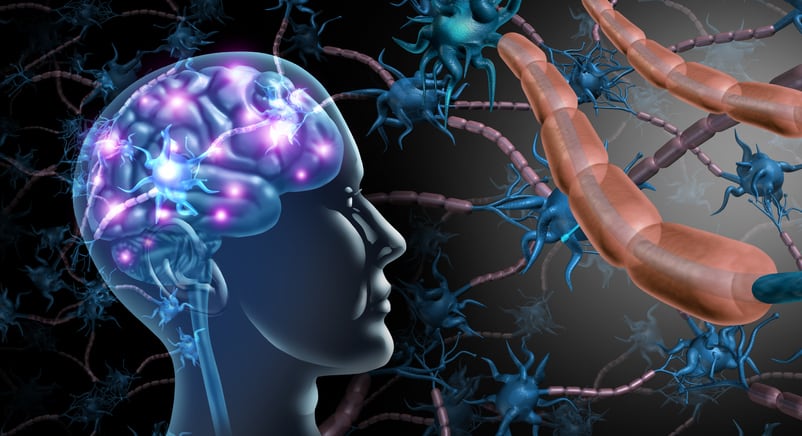“Understanding the mechanistic pathway behind polyphenol metabolism by microbes may be key to achieving an effective treatment and prevention strategies for neurodegenerative disease (NDD)," the researchers from Quingdao university highlight in their review published in 'Nutrients'.
“Moreover, the use of more precise metabolomic analysis provides a powerful new tool for studying the beneficial effects of plant polyphenols and the specific metabolic mechanisms mediated by the gut microbiome, as well as the overall positive effects on the host.”
Polyphenol power
The review states the physiological properties associated with polyphenols may indicate their potential role in the prevention and treatment of neurodegenerative disease (NND), such as Alzheimer’s disease (AD) and Parkinson’s disease (PD). This is resultant from their antioxidant, anti—inflammatory, neuroprotective potentials, as well as their ability to promote intestinal health.
Polyphenols are the secondary metabolites of plants and need to undergo extensive phases of metabolism in the intestine before absorption, including phase I and II enzymatic biotransformation and microbiota metabolism. It is established that via the production of various metabolites from such polyphenols by the microbiota, such as SCFAs, the subsequent secretion of hormones and neurotransmitters affecting the gut-brain axis can influence NNDs.
Thereby, the review sought to analyse evidence for the role of polyphenols in slowing down NND progression through the gut-brain axis as a result of altered intestinal microbiota in animal models.
Review of the field
The researchers discuss how the potential for polyphenols results from the microecological dysregulation within the intestine of patients with NND, “For example, the richness and diversity of intestinal microbiota are reduced, the relative abundance of beneficial bacteria is decreased, and the abundance of inflammation-related taxa is increased.
“Polyphenol compounds and their metabolites can slow the progression of neurodegenerative diseases by improving the disorder of gut microbiota.”, they add.
The research collated within the review highlights how this occurs due to the promotion of growth of the beneficial microbes, such as Lactobacillus and Bifidobacterium; two strains that have been found to reduce the number of pathogenic species including Clostridium.
The scientists spotlight isoorientin, quercetin, fisetin, anthocyanins, curcumin and resveratrol as the polyphenols observed to have the beneficial effects. For example, animal studies demonstrated that isoorientin, found in corn silk, bamboo, and gentian leaves, can alleviate synaptic dysfunction and spatial memory deficits following observed microbiome modulations.
The polyphenols were also demonstrated to achieve the benefits by influencing the microbial metabolites of SCFAs, tryptophan and tyrosine.
Future research
The established findings add to growing support for the potential of dietary intervention to be utilised in future treatments for NDD.
It is emphasised that “At present, the properties of intestinal microflora in patients with neurological diseases are not fully understood, and the mechanism of interaction between microflora and host is still the focus of research.”.
This highlights the need for further research utilising more precise microbiome sequencing; a technique that the researchers conclude will be a powerful tool for the future of this field.
Source: Nutrients
https://doi.org/10.3390/nu14245373
“The Interaction of Polyphenols and the Gut Microbiota in Neurodegenerative Diseases”
by Yuan Zhang, Wanpeng Yu, Lei Zhang, Man Wang and Wenguang Chang.

